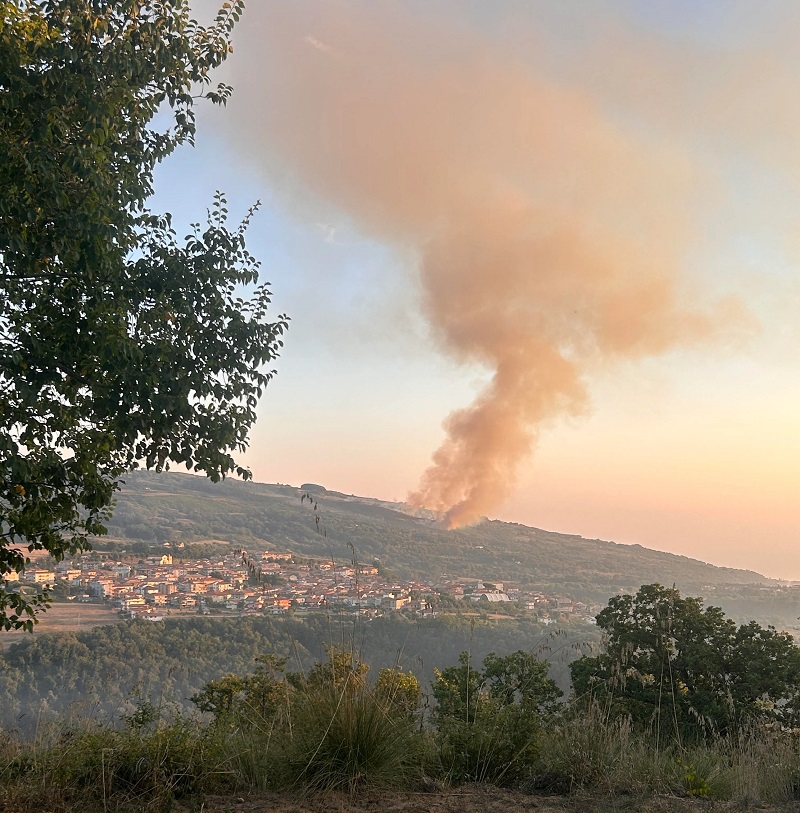The summer season has also brought wildfire season. With the planet experiencing its warmest day in recent history on July 22 — 62.88 degrees Fahrenheit — communities around the world have had to respond to the hazards it brings to their health and surroundings.
One recent summer in Italy, a tourist saw the effects of wildfire season firsthand — particularly what happens when the response is lacking.


One Redditor posted to the r/mildlyinfuriating subreddit with photos of a wildfire starting near where they were in Calabria, Italy. After they attempted to report the incident, emergency services ultimately did nothing to stop the fire from spreading.
"Wanted to report a starting wildfire in Italy, no emergency services could speak English and just hung up on me," the original poster wrote in the post's caption, noting that the fire grew bigger as no action was taken.
Wildfires are intense and often unpredictable natural events. While lightning and the sun are sometimes responsible, about nine out of 10 wildfires are started by human activities. These causes are more common. However, rising temperatures have made wildfires in Mediterranean and semiarid areas more hazardous in recent years.
In late July, most of Italy was under "high to extreme risk" of wildfires, per reporting from Sky News. This prompted authorities to send a tanker with 12 million liters of water to affected areas in Sicily.
The state of California is also prone to intense and frequent wildfires due to its Mediterranean landscape and longer reported droughts compared to other parts of the United States. An analysis by the Washington Post predicts that by 2052, the Southern states will house the highest number of citizens at risk for wildfires at 32 million.
Once a wildfire begins, it can spread astonishingly fast, especially in warm weather with strong winds and lots of dry vegetation. Some wildfires can move at speeds of up to 14 miles per hour, burning through everything in their path. The aftermath affects both air quality and the economy.
According to the United States Congressional Budget Office, federal spending on fire suppression on federal lands averaged $2.5 billion per fiscal year (in 2020 dollars) between 2016 and 2020.
Rising temperatures have been analyzed in correlation with pollution released in the air, namely from the use of dirty energies and items going to landfills. Communities can play a part in minimizing wildfire occurrences with simple actions that reduce harmful pollution, such as biking or avoiding single-use plastic. You can also take steps to waste less water at home, such as capturing rainwater and rewilding your yard.
"Well, this is on them, you did your best that's all you could do," wrote one user.
"That's frustrating," commented another.
Join our free newsletter for easy tips to save more, waste less, and help yourself while helping the planet.









